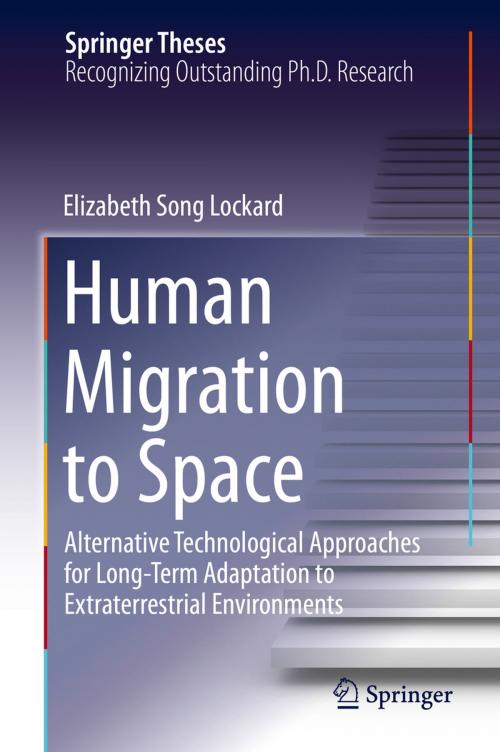Human Migration to Space
Alternative Technological Approaches for Long-Term Adaptation to Extraterrestrial Environments
Nonfiction, Art & Architecture, Architecture, Interior Design, Science & Nature, Technology, Aeronautics & Astronautics| Author: | Elizabeth Song Lockard | ISBN: | 9783319059303 |
| Publisher: | Springer International Publishing | Publication: | May 13, 2014 |
| Imprint: | Springer | Language: | English |
| Author: | Elizabeth Song Lockard |
| ISBN: | 9783319059303 |
| Publisher: | Springer International Publishing |
| Publication: | May 13, 2014 |
| Imprint: | Springer |
| Language: | English |
Human migration to space will be the most profound catalyst for evolution in the history of humankind, yet this has had little impact on determining our strategies for this next phase of exploration. Habitation in space will require extensive technological interfaces between humans and their alien surroundings and how they are deployed will critically inform the processes of adaptation. As humans begin to spend longer durations in space—eventually establishing permanent outposts on other planets—the scope of technological design considerations must expand beyond the meager requirements for survival to include issues not only of comfort and well‐being, but also of engagement and negotiation with the new planetary environment that will be crucial to our longevity beyond Earth. Approaching this question from an interdisciplinary approach, this dissertation explores how the impact of interior space architecture can meet both the physical and psychological needs of future space colonists and set the stage for humankind to thrive and grow while setting down new roots beyond Earth.
Human migration to space will be the most profound catalyst for evolution in the history of humankind, yet this has had little impact on determining our strategies for this next phase of exploration. Habitation in space will require extensive technological interfaces between humans and their alien surroundings and how they are deployed will critically inform the processes of adaptation. As humans begin to spend longer durations in space—eventually establishing permanent outposts on other planets—the scope of technological design considerations must expand beyond the meager requirements for survival to include issues not only of comfort and well‐being, but also of engagement and negotiation with the new planetary environment that will be crucial to our longevity beyond Earth. Approaching this question from an interdisciplinary approach, this dissertation explores how the impact of interior space architecture can meet both the physical and psychological needs of future space colonists and set the stage for humankind to thrive and grow while setting down new roots beyond Earth.















